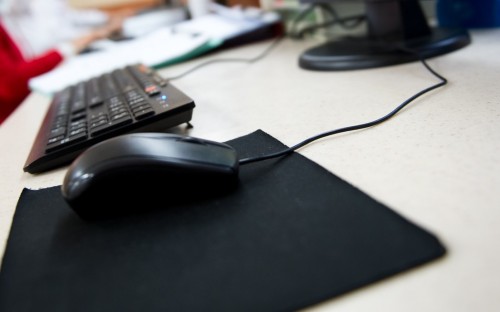As deadlines loom and pressure mounts, MBA applicants can be forced into taking the GMAT without refreshing math and verbal skills, which may have remained dormant for years.
As a result of time constraints, we have to make the most of our GMAT preparation. Here are three time-saving methods of study that you can implement right away.
Spend More Time on Your Mistakes
Mistakes are learning gold. The only way to truly learn anything is by making mistakes. To our detriment, many people are conditioned to be ashamed of their mistakes. They aren’t taught to embrace them. It’s time to change that.
When you sit down to study and are considering how to allocate your time, focus on the mistakes you make. As part of your studies you should be reviewing concepts and questions from prior study sessions. If you’re following a good study plan, such as a one - month GMAT study schedule, then you don’t have to spend any time thinking about this.
But if you created your own schedule, you may not have budgeted enough time to review your mistakes. If you want to dominate the GMAT, you need to plug those gaps.
Track What You Know and Don’t Know
Building on mistakes, you need to keep track of your knowledge. This goes hand-in-hand with good learning practices. Keep a log of what you have learnt and what you have had trouble with. Identify the concepts that you struggle with. This will make you focus even more on your weaknesses, and make you more attune to avoiding them.
For my students, I always ask them to keep track of what they missed – they need to write down the basic features of the problem, and where it came from, so that they can return to it in a few weeks, if necessary.
Next, they write down the concept that the question tests. This makes students think about the knowledge that the GMAT is examining. They have to catalogue the questions, and, over time, they see a pattern start to emerge.
Just like my students, you need to write down why you missed the problem. Was it the concept? Was it the wording? Was it a small mistake you made, toward the end of the problem? This is a key component of diagnosing an issue. It’s too ambiguous to point at a problem and say, “I made a mistake in question 12”. You have to know what kind of mistake it was.
Finally, write down what you will do in the future to avoid that specific mistake. This is the next key step in learning. Once a problem is diagnosed, you need to take action. It is this reflective process that pushes us all forward.
Timed Skill Matters Most
Don’t let your untimed skills muddy your GMAT prep. Many students fall into a mental trap – “I worked through this problem untimed, answered it correctly, so I am good with this question type or skill. I don’t have to investigate any further”. This is as mythical as Santa delivering presents to every boy and girl in the world in one night.
You must practice with a timer. Don’t spend your time working through problems untimed because it is not a true indication of your skills on the GMAT. Even if you are given extra time on the test, you still need to practice with a timer.
If we had infinite time, we could accomplish an infinite amount of things. But our time is finite, and we have to use it wisely. Don’t expect to just “figure it out” a week before the test. You need to practice with time from the very beginning so that it becomes an inherent part of your GMAT studies.
Takeaway
Making the most of your time is a skill that goes beyond GMAT preparation. We all need to grapple with a lack of time, so we need to be efficient and effective with what we have. This means studying effectively and choosing the absolute best in GMAT and MBA admissions resources, so you receive acceptance letters from all the business schools that you apply to.
So start timing yourself, keep track of the things you miss, and spend more time on the mistakes that you make. By test day, these strategies will pay off.
This post was written by Kevin Rocci, resident GMAT expert at Magoosh, a leader in GMAT prep.
RECAPTHA :
28
62
a2
23







